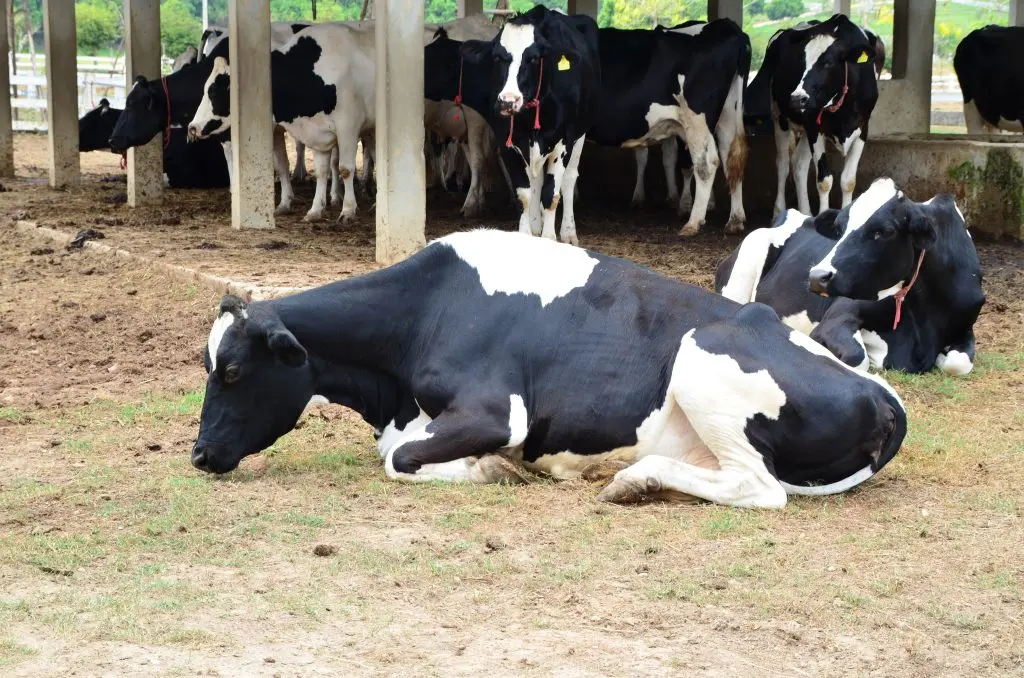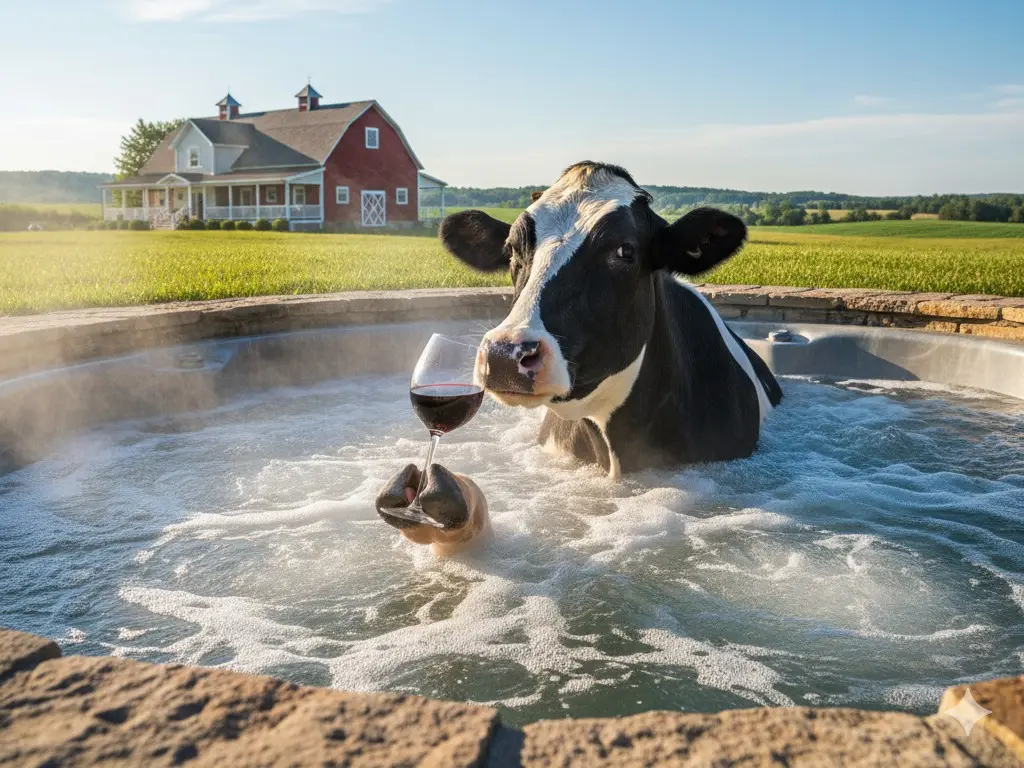Some of South Africa’s veterinarians are tickled pink at reports doing the rounds again regarding using red wine to treat ketosis in dairy cattle. However, although the somewhat old information being shared apparently has merit, the alcohol in wine can also be dangerous for the cattle.
By Lloyd Phillips, senior journalist at African Farming and Landbouweekblad
The jokes and smiles came fast from South Africa’s veterinarians that African Farming approached for comment. They had just watched the social media video of, and read the abstract for a research paper on, using red wine to treat ketosis in dairy cows.
Ketosis typically occurs during the first four weeks post-calving. It results if a cow’s milk production requires more energy than she can consume, and so her body starts breaking down its fat reserves. This breakdown can result in undesirably elevated production of ketone bodies that, in turn, cause health concerns in the affected cow.
The Instagram video recently reposted by the specialist dairy cattle veterinarian Dr Michelle Schack from Arizona in the US briefly shows how Schack reportedly used red wine to successfully treat ketosis in a first-calver dairy cow. The cow, named Cinnamon, reportedly began eating again not long after Schack syringe-dosed her with a bottle of red wine.
The results of a comparatively small trial conducted on a dairy farm in Oregon in the US were presented at the 31st World Buiatrics Congress in Madrid, Spain, in 2022. Buiatrics is focused on cattle health and illnesses.
 Ketosis in dairy cows causes various symptoms of ill health including lethargy and reduced activity, as well as depression and dullness. Photo: Getty Images/ubonwanu
Ketosis in dairy cows causes various symptoms of ill health including lethargy and reduced activity, as well as depression and dullness. Photo: Getty Images/ubonwanu
Red Wine Treatment Achieved Most Cures
Researchers found that after three days of being treated for ketosis, these were the results:
57% of cows treated orally with two litres of red wine on day one and with one litre of red wine a day on days two and three were cured;
36% of cows treated orally with two litres of ethanol on day one and with one litre of ethanol a day on days two and three were cured;
33% of cows treated with a drench protocol mixture of 300ml of propylene glycol, 20 litres of water and a blend of electrolytes were cured; and
25% of cows treated orally with 300ml of propylene glycol a day for three days were cured.
The research paper’s abstract states: “It is noteworthy that wine would be a simple and viable alternative for the treatment of ketosis on organic dairy farms.”
African Farming has been unable to find information explaining why red wine seems, according to the small trial, reasonably effective at treating ketosis in dairy cattle.
From the little that African Farming can ascertain at this stage, the alcohol in red wine can potentially cause additional severe negative health effects in dairy cattle.
Schack writes with her video: “Friendly reminder to talk with your vet before giving any medical treatment to your cows!”
Also read: Misused medicines costing smallholder farmers livestock and profits
Light Relief After a Busy Week
Meanwhile, the South African vets that African Farming spoke to informally and anonymously about the research came up with some humorous responses.
Regarding the video, Vet A said it makes him think of the stereotypical “wine mom” often referenced on social media who resorts to a glass or more of wine to help calm her nerves after dealing with demanding children and her spouse. In Schack’s video, she refers to Cinnamon’s calf and the calf’s bull.
In response to the research abstract, Vet A said: “Very interesting but unlikely to work.” He thinks the whole farm might be tempted to have a party and forget to treat the cows!
Vet B said: “My first thought would be to give me the wine, and then I’ll treat the animal. This video lightened up my afternoon after a hectic week. Ketosis in sheep is called domsiekte (dumb sickness). I think I know a few people with ketosis then.”
On a serious note, Vet B expressed a wariness of only this single, small study’s findings and of the video’s content. He would like to see significantly more peer-reviewed research on the subject.
Also read
Heartwater on the increase
Lumpy skin disease – what you need to know
Kroonstad vet lab get accreditation for bovine brucellosis testing



Dining and Cooking